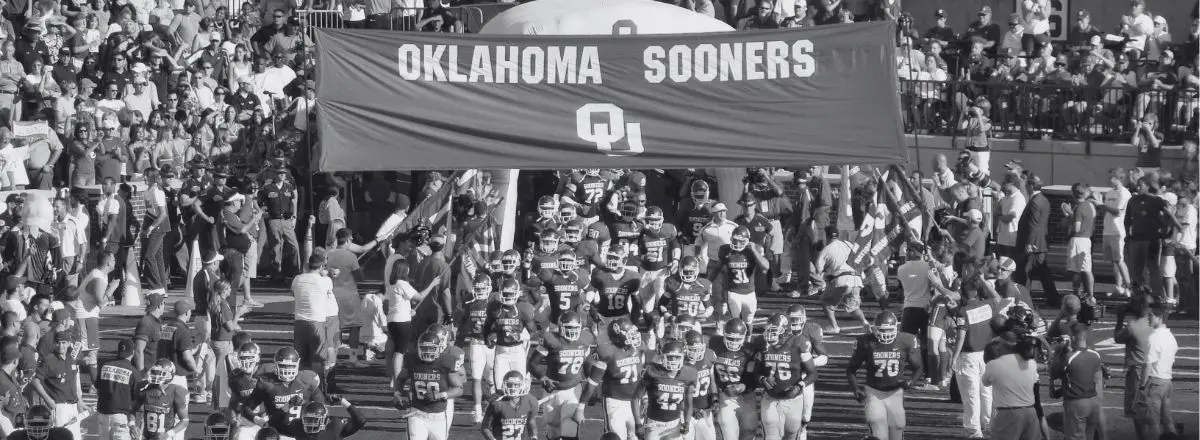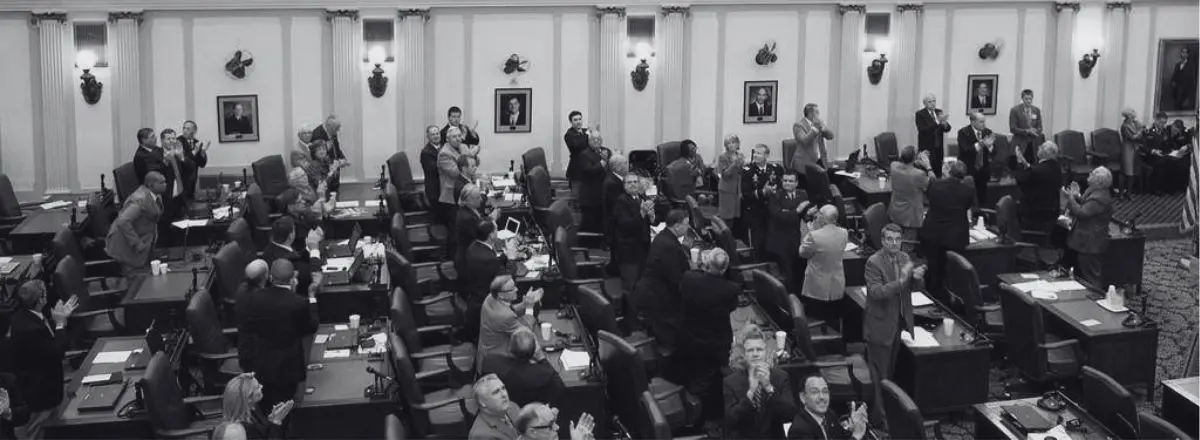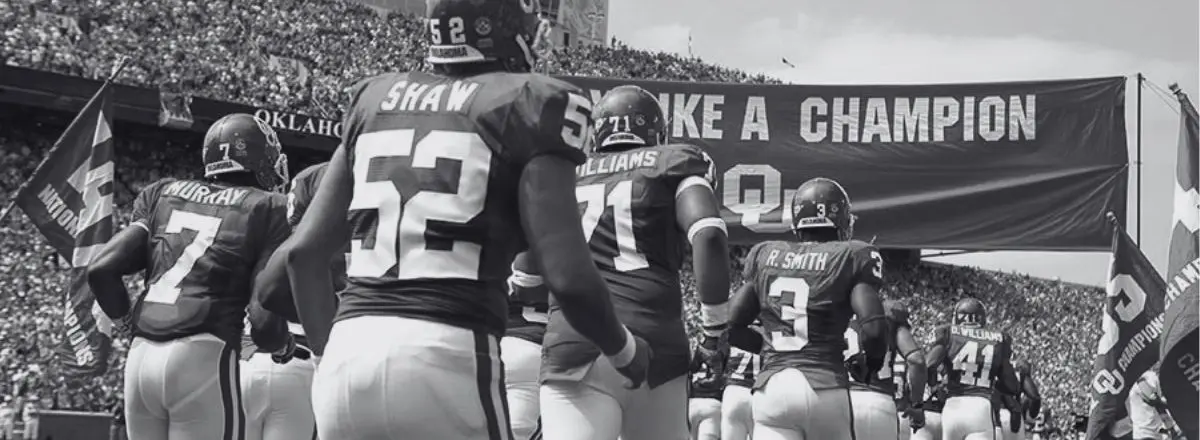We already know Oklahoma can't legalize sports betting until at least 2023, but that hasn't stopped people from talking about the potential impact of gambling throughout the state. And yet, most of the questions tend to focus on what will happen once sports betting in Oklahoma takes off. But given the recent concern expressed within the state about legal sports betting advertisements, we should really be asking whether legal online sports betting in Oklahoma is even a realistic possibility in the near future.
Don't interpret this as an overreaction to a single discussion. The lack of policing when it comes to sports betting ads, and the money large companies are spending on them, has been a debate throughout the United States for quite some time. It is now coming to a head in Oklahoma, as they look toward the future and try to understand if legal online sports betting can be implemented as safely as possible.
Why Legal Sports Betting Advertisements Concern Oklahoma
Sports betting has become an unfathomably lucrative business. In 2021 alone, $57.2 billion in total bets were placed throughout the United States, which resulted in total tax revenue of nearly $4.75 billion, according to the American Gaming Association.
It is the latter number that often dictates why states legalize sports betting in the first place: They want the tax revenue. Pretty much everything else can fall by the wayside once a state's infrastructure is set up. They may claim one thing. The sports betting initiatives that seek to divert tax funds from gambling to worthy causes will claim another. But in the end, this is a dollars and cents business that, as experts note, doesn't actually include too much regulation.
And that brings us to one of Oklahoma's issues with the legalization of sports gambling: its advertising system. Sportsbooks are prepared to spend boatloads on reeling in new customers. Caesars Entertainment, for example, promised to spend around $1 billion just to pump up their sports betting app. Currently, there are no rules in place to restrict this type of spending. Sportsbooks can spend basically whatever they want, in whatever market they want, to advertise their services—even if the market in question doesn't actually have legal sports betting.
This is something Oklahoma would like to change. As John Holden, an assistant professor at Oklahoma State University recently told NPR: "We do have the Federal Trade Commission, which is responsible for investigating advertising and certainly could take action if they saw something as fraudulent or misleading. But it's not clear at the moment that they have their sights set on gambling advertisements."
Some might wonder why Oklahoma would want a state or federal push to restrict legal sports betting advertisements. And, well, it's a great question.
Should Legal Sports Betting Advertisements Be Restricted?
Access to sports betting is at the heart of this issue. Or rather, we should say unintended access.
Sports betting ads aren't just seen and consumed by those who are legally old enough to gamble. They are everywhere—at sporting events, on television, on social media, on YouTube videos, everywhere. That means they can be seen by impressionable youngsters or appeal to those who are close to legal gambling age but not quite there. Many are worried, specifically, about the morality of sports betting ads being placed on college campuses.
Opponents of sports betting in Oklahoma argue that the combination of access and over-stimulation from advertising can play a role in creating or exacerbating gambling addictions. And they might have a point. According to NPR, the National Problem Gambling Helpline Network received 270,000 calls, texts and chats in 2021— which represented a 45 percent jump over the previous year, in 2020.
That type of increase is inarguably concerning. And it's why Oklahoma wants not just state restrictions on sports betting advertisements, but Federal constraints, much like tobacco and alcoholic beverage companies are required to follow. If this was just a state issue, Oklahoma wouldn't need to be so resistant to legal sports betting. They could count on policing it themselves.
The Future of Sports Betting in Oklahoma
In the end, we don't actually think Oklahoma's well-founded concerns will prevent sports betting from entering the panhandle. Money inevitably wins out over everything, and there are tens of billions of dollars to be made over the next decade for some of the more robust markets—including Oklahoma itself, which is heavy on college football and basketball.
There's also the impossibility of actually preventing sports wagers. People in Oklahoma are already betting on sports. They can't do it on-location in their state, but there are plenty of sites that crack our list of the top online sportsbooks willing to let Oklahoman's make an account and submit wagers.
States against sports gambling are, in this regard, fighting a losing battle. But that doesn't mean steps cannot be taken to ease the over-accessibility of legal sports betting. Don't be surprised, in fact, if Oklahoma starts a trend and there is legislation in the coming years that sets a cap per market on how much sportsbooks can spend on advertising as well as where they're able to advertise at all.
Indeed, legal sports betting in the United States isn't going anywhere. But the freedom of sportsbooks to write blank checks for advertising actually could.
Take a look at this list of the top online sportsbooks so you can find one that works for all of your sports betting needs:
-
EXCLUSIVE BONUS
 50% bonus up to $250Play Now
50% bonus up to $250Play NowT&C apply, 18+, Play responsibly
- EXCLUSIVE BONUS
 125% up to $1,250Play Now
125% up to $1,250Play NowT&C apply, 18+, Play responsibly
- EXCLUSIVE BONUS
 225% up to $3,625Play Now
225% up to $3,625Play NowT&C apply, 18+, Play responsibly
-
 50% bonus up to $250Play Now
50% bonus up to $250Play NowT&C apply, 18+, Play responsibly
-
 125% up to $2,500Play Now
125% up to $2,500Play NowT&C apply, 18+, Play responsibly












